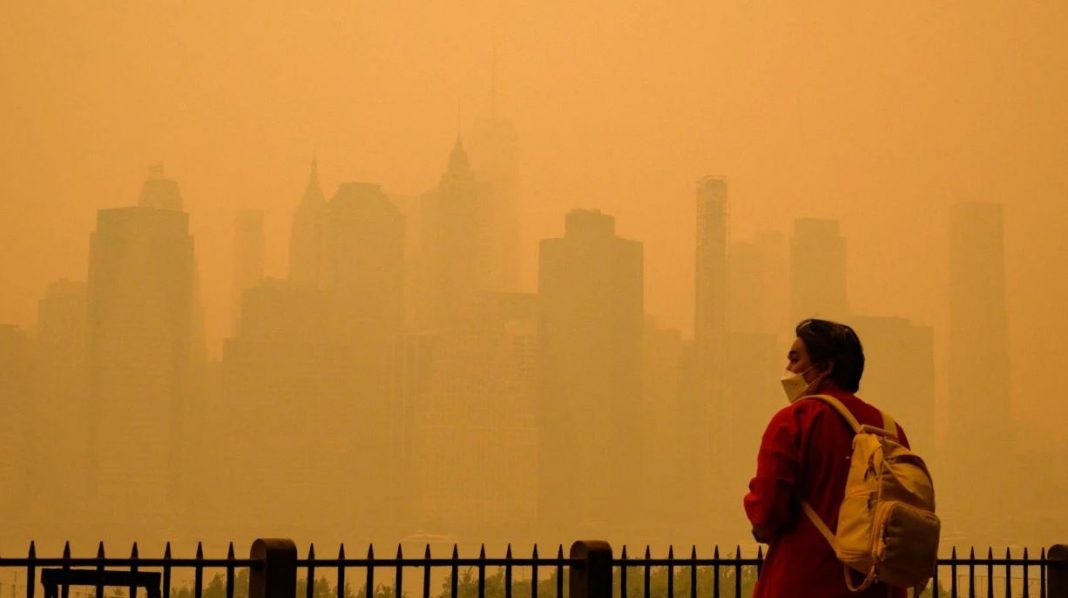People in the eastern United States are feeling the effects of the wildfire smoke with itchy, watery eyes, a scratchy throat, a runny nose, and a little of coughing. Those without preexisting ailments might expect this to be a minor annoyance at most.
However, even short exposures may have immediate consequences for people who are most sensitive, since the chemicals in the smoke can cause inflammation and aggravate preexisting health conditions. People of all ages who have problems breathing or heart health fall into this category. Dr. Galiatsatos has observed, “For vulnerable populations, the brevity of exposure may be enough to flare up existing lung issues, or conditions in general.” The danger of major health impacts is also increased for infants, young children, the elderly, and women who are pregnant.
Dr. Samantha Green, a family doctor at Unity Health Toronto, recommends staying inside as much as possible when air quality is low. If you have preexisting health concerns and the air quality is moderate, you may still want to limit your time spent outside. numbers of the Air Quality Index over 100 indicate harmful air, while numbers between 51 and 100 indicate moderate air quality.
Tufts University associate professor of medicine Laura Corlin advised against vigorous outdoor exercise or activities. Put on a face mask that fits snugly, like a N95, before venturing outside. Dr. Galiatsatos advised that while returning home, a change of clothing be made.
N95 masks are often not suited for children and may not offer appropriate coverage, and the CDC adds that dust masks, surgical masks, and bandannas are not sufficient to protect children from smoke. (A KF94 or similar mask that fits well would be helpful.) The organisation also concluded that youngsters would not be protected from secondhand smoking by inhaling through a damp towel.
The experts all said to keep the windows shut. Installing an air purifier with a HEPA filter in the room where you spend the most time may assist. Dr. Corlin advised reducing the use of any appliances that may detract from the quality of indoor air, such as candles, fireplaces, and deep-fat fryers and broilers.
According to Dr. Francesca Dominici, biostatistics, population, at the Harvard T.H. Chan School of Public Health, our immune systems become less efficient after being exposed to high amounts of small particulate matter in the air. Because your immune system is impaired, you should avoid spending too much time unprotected in crowded indoor areas with other individuals who may be carrying contagious diseases.
Toxic air pollution have been linked to an increased risk of heart attacks. You should go to the emergency room if you have chest discomfort or difficulty breathing.
Dr. Dominici warns that patients who already suffer from asthma or chronic bronchitis should be on the lookout for an exacerbation of their symptoms. Contact your doctor if your symptoms worsen; he or she may increase your dosage.
Dr. Dominici recommends keeping an eye on infants and young children to detect any signs of respiratory distress or frequent coughing. If your kid has asthma, you may want to talk to their doctor about whether or not their current treatment needs to be adjusted.

